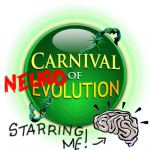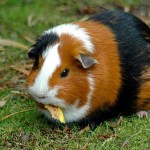Brain and Behavior
Maggie Fox writes:
Brain scans may be able to predict what you will do better than you can yourself . . . They found a way to interpret "real time" brain images to show whether people who viewed messages about using sunscreen would actually use sunscreen during the following week.
The scans were more accurate than the volunteers were, Emily Falk and colleagues at the University of California Los Angeles reported in the Journal of Neuroscience. . . .
About half the volunteers had correctly predicted whether they would use sunscreen. The research team analyzed and re-analyzed the MRI scans to…
One of the problems with the rise of behavioral economics is that too often behavior is defined as irrational, the result of cognitive screwups. I've dealt with this issue before, but James Kwak convincingly argues that the BP oil disaster is not due to a cognitive failure to assess risk:
I have no doubt that it is true that people have problems estimating the chances of certain rare events.* But to stop there is to whitewash the sins of the companies and the executives who created these crises.
First, it doesn't do to say that ordinary people are irrational in making ordinary everyday…
Or more precisely, why do some patients not follow their doctors' orders even when it is blindingly obvious that they should do so? In Monday's NY Times there was an interesting article about patients who are being paid to take their medicine in a reliable manner. I was going to write about the payment issue as it raises all sorts of questions, but I've become fixated on something in the article: ignoring obvious incentives to take care of yourself.
For example, once a juvenile diabetic (someone who can't manufacture his or her own insulin) takes a lot of insulin before eating a meal,…
Last week's spat between Nicholas Carr and Steven Pinker generated a lot of attention â and, happily, delivered a couple of the more lucid framings yet of the debate over whether digital culture makes us shallow, as Carr argues in his new book, or simply represents yet another sometimes-distracting element that we can learn to deal with, as Pinker countered in a Times Op-Ed last Thursday.
Â
I sympathize with both arguments; I see Carr's point but feel he overplays it. I find digital culture immensely distracting. I regularly dive down rabbit holes in my computer,…
The Yale psychologist Paul Bloom has written an excellent new book, How Pleasure Works, that I had the pleasure of blurbing. The book elegantly refutes the idea that our pleasures are mere sensations, or that our delight can be neatly reduced into some ingredient list of superficial perceptions. Instead, Bloom emphasizes the importance of essentialism, which is the instinctive belief that everything in the world has an underlying reality, or true nature, or essence.
We are all natural essentialists. Frank Keil, a psychologist at Yale, has done some interesting work that captures this…
Evolutionary Psychology suffers from a PR problem, which can be mostly blamed on ignorant (even if well-intentioned) members of the population who don't know what they're talking about.
Evolutionary psychology attempts to describe the evolution of the mind and of behavior and, well, everyone has a mind, and everyone can observe behavior. This makes people think that they are experts. Anybody who has ever had a child knows everything there is to know about child development. Anybody who has ever owned a dog becomes an expert on canine behavior. Study after study demonstrates the fact that…
Â
Â
Unbelieveble! Department, via SciencePunk: Â Giant mayfly swarm caught on radar
NYRB reviews what sounds like an especially moving memoir from Andre Agassi.
Whatever It Takes Department, via Ed Yong:Â Superstitions can improve performance by boosting confidence.
The climate-change doubt industry and its roots - http://bit.ly/an4cAr, via @stevesilberman
RitaRubin: Study: Have bad habits? U r more likely 2 blame health problms on your genes. 'Cause u can't do anything 2 change them http://bit.ly/ad6iRy. Damned interesting if true.
techreview: Genetic Testing Can…
I wonder what the loons at Age of Autism will say about this.
Actually, I know what they'll say. Whenever a scientific study like the one just published earlier this week the top tier journal Nature, which examines genetic variations (CNVs) associated with autism and autism spectrum disorders (ASDs), comes out, they have a standard reply. Even though, as of this writing, I haven't seen yet seen a reply on the anti-vaccine crank blog Age of Autism to the study I'm about to describe, I'm sure it's coming and I'm sure it will look something like this article from a year ago by Mark "Not A…
I've gotten some email asking for a simplified executive summary of this paper, so here it is.
A large study of almost a thousand autistic individuals for genetic variations that make them different from control individuals has found that Autism Spectrum Disorder has many different genetic causes: there isn't one single gene responsible for ASD, but a constellation of hundreds, each with the potential to affect the development of the brain and cause the symptoms of autism. They don't know exactly how each of these genes contributes to the disorder, but they have found that many of them are…
A nostalgic post, reposted. Nostalgically.
Analyzing 30 years of data detailing a large rabies virus outbreak among North American raccoons, researchers at Emory University have revealed how initial demographic, ecological and genetic processes simultaneously shaped the virus?s geographic spread over time. The study appears online in the Proceedings of The National Academy of Sciences.
That?s the start of an interesting report on Science Daily.
And it reminds me of living through the Great Rabid Raccoon Outbreak in Massachusetts about 15 years back. (Not to be confused with this rabies…
TRICHOTILLOMANIA (or hair pulling) is a condition characterised by excessive grooming and strong, repeated urges pull out one's own hair. It is classified as an obsessive-compulsive disorder (OCD), and is relatively common, affecting about 2 in 100 people. Sufferers normally feel an increasing sense of tension before pulling out their scalp hair, facial hair, and even pubic hair, eyelashes or eyebrows. This provides gratification, but only briefly.
Hair pulling is usually thought of as being psychological in origin, but an intruiging new study now suggests that it occurs as a result of…
Ever have one of those times when you have a cool new blog post all ready in your head, just needs to be typed in and published? Just to realize that you have already published it months ago? Brains are funny things, playing tricks on us like this. I just had one of such experiences today, then realized that I have already posted it, almost word-for-word, a few months ago. It's this post. But something strange happened in the meantime: that post, in my head, got twice as long and changed direction - I started focusing on an aspect that I barely glossed over last time around. So perhaps I need…
The 24th installment of the Carnival of Evolution is up at NeuroDojo, and this month features an extra helping of brain!
As usual, I submitted a few pieces. With respect to evolution more generally, you can find my piece on oral sex in fruit bats:
Speaking of scandals, a paper on oral sex in fruit bats was at the center of a personal dispute that got called, inevitably, fruitbatgate. Regardless of your opinions on that matter, the science is definitely worth looking at, which Jason does at The Thoughtful Animal. (And not in a pervy way.)
And since the special theme of the carnival this month…
For your reading and collection development pleasure:
137: Jung, Pauli, and the Pursuit of a Scientific Obsession by Arthur I. Miller
"The history is fascinating, as are the insights into the personalities of these great thinkers."--New Scientist Is there a number at the root of the universe? A primal number that everything in the world hinges on? This question exercised many great minds of the twentieth century, among them the groundbreaking physicist Wolfgang Pauli and the famous psychoanalyst Carl Jung. Their obsession with the power of certain numbers--including 137, which describes the…
Zen recently wrote mentioned this study on his blog, so I thought it was time to dredge it out of the archives. Also, I've just returned from APS (see my daily recaps here here and here), and I am TIRED.
Domestic animals and their wild counterparts can be different in big ways; there can be differences in morphology (physical characteristics), physiology, and behavior. These changes may depend on spontaneous adaptations to captivity or to artificial selection pressures arising from the motivation for domesticating the animal in the first place.
One change that is often observed as a result of…
tags: Birdbooker Report, bird books, animal books, natural history books, ecology books
Books to the ceiling,
Books to the sky,
My pile of books is a mile high.
How I love them! How I need them!
I'll have a long beard by the time I read them.
~ Arnold Lobel [1933-1987] author of many popular children's books.
The Birdbooker Report is a special weekly report of a wide variety of science, nature and behavior books that currently are, or soon will be available for purchase. This report is written by one of my Seattle birding pals and book collector, Ian "Birdbooker" Paulsen, and is edited…
What is it with some English professors and their contempt for science? Some of the noisiest, most obnoxious, most self-indulgently prolix and goofy critics of the New Atheism are full-of-themselves pomposities like Eagleton and Fish, and now we can apparently add another, Marilynne Robinson. She's a novelist — I have not read any of her books, but they have received quite a bit of critical acclaim — and she recently gave a series of lectures, now published as a book, Absence of Mind, in which she is going to give the godless a piece of her mind. Unfortunately for her, it seems to be a small…
Today was the first full day of APS in Boston. Well, sort of. The main APS program began this evening, but starting last night and continuing through the rest of today was the pre-conference APS-STP (Society for the Teaching of Psychology) Teaching Institute, which I attended, and during which I presented a poster.
Here's a review and recap for the conference thus far.
Last night there were only two concurrent sessions, I went to a session on teaching about the chemical senses presented by Debra Zellner and Scott Parker. Demos abound for teaching about visual and auditory sensation and…
I don't mean to beat up on Dr. Michael Fitzpatrick. I really don't. I realize I rather harshly criticized him yesterday for being so hostile to the concept of "denialism," to the point where he characterized even the use of the term as a means of "suppressing" free speech. Normally, that criticism would have been enough. If Dr. Fitzpatrick answered, that would be all well and good; if he didn't, I'd move on and forget about it. Unfortunately, I was made aware of another article he published at his usual gig at Spiked Online entitled Censorship is not the answer to health scares.
Damn if it…
Some kids more readily recognize Ronald McDonald than the President of the United States of America. Sad, right?
Check out this exchange, from the 2004 movie Super Size Me:
Morgan Spurlock: [to kids] I'm gonna show you some pictures and I want you to tell me who they are.
Children: OK.
Morgan Spurlock: [Showing a picture of George Washington] Who's that?
Child: George Washington?
Morgan Spurlock: Good. Who was he?
Children: He was the 4th president. He freed the slaves. He could never tell a lie.
Morgan Spurlock: [Shows picture that you can't see] Who's that?
Child: George W. Bush?
Morgan…


